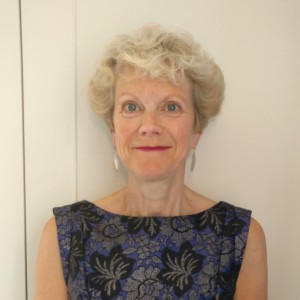Maplethorpe Fellow in Pathology; Director of Studies in Pre-clinical Medicine; Supervisor in Pathology
Pathology
Fellow
Murray Edwards has been a very significant part of my life for over 30 years, as an alumna and academic member. The College community has continued to evolve in response to the enormous changes in women's lives and to strengthen its unique and very effective contribution to women's education and career paths. Women are so happy realising their academic potential here and I am delighted to be a member of the College dedicated to that end.
Degrees
BA, MA, PhD (Cambridge)
Research interests
Dr Turner's laboratory in the Pathology Department, and subsequently at Glaxo Wellcome, focused on the molecular control of the division of white blood cells - understanding this is key both to our ability to increase a desirable immune response (as in immunisation) or reduce a pathological one (as in autoimmune disease and allergy).
Biography
After reading Natural Sciences (Part II Pathology) here at New Hall, Dr Julia Turner completed her PhD in Molecular Oncology at The Ludwig Institute for Cancer Research in Cambridge before moving to the University of California, San Francisco to study signal transduction pathways involved in T cell activation. After working with Dr Tim Hunt (Imperial Cancer Research Fund) to learn about the control of the cell cycle, she became a Cambridge University Lecturer in Immunology in the Department of Pathology, her lab focusing on the molecular biology of T cell division. She became a Fellow of New Hall in 1991. Having gone on to experience research in the private sector, she returned to San Francisco for several years, and subsequently to Cambridge as a wife and mother. Julia continues to love her role as a member of the fellowship and supervisor in Pathology to Medical, Veterinary and Natural Sciences students and very much enjoys her role as director of studies in pre-clinical medicine.
Selected Publications
-
Fehérvári, Z., Cooke, A., Brett, S. and Turner, J. (2002). Perturbation of naive TCR transgenic T cell functional responses and upstream activation events by anti-CD4 monoclonal antibodies. Eur. J. Immunol., 32: 333–340
-
Metcalfe S1, Alexander D, Turner J. (1994). FK506 and cyclosporin A each inhibit antigen-specific signalling in the T cell line 171 in the absence of a calcium signal. Cell Immunol. Oct 1;158(1):46-58. doi: 10.1006/cimm.1994.1255
-
Turner, JM (1993). IL-2-dependent induction of G1 cyclins in primary T cells is not blocked by rapamycin or cyclosporin A. International immunology, 5(10), 1199-1209.
-
Glaichenhaus, N., Shastri, N., Littman, D.R. & Turner, JM (1991) Requirement for association of p56lck with CD4 in antigen-specific signal transduction in T cells. Cell 64, 511-520.
-
Turner, JM Brodsky, M.H., Irving, B.A., Levin, S.D., Perlmutter, R.M. & Littman, D.R. (1990) Interaction of the unique amino-terminal region of the tyrosine kinase p56lck with the cytoplasmic domains of CD4 and CD8 is mediated by cysteine motifs. Cell 60, 755-765
